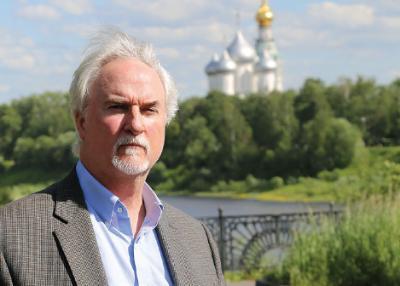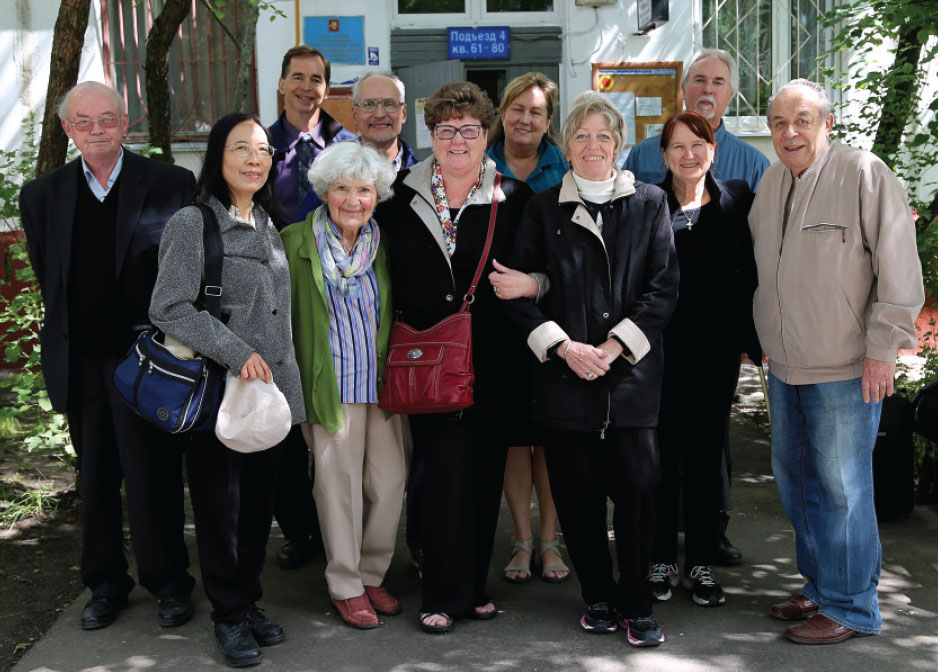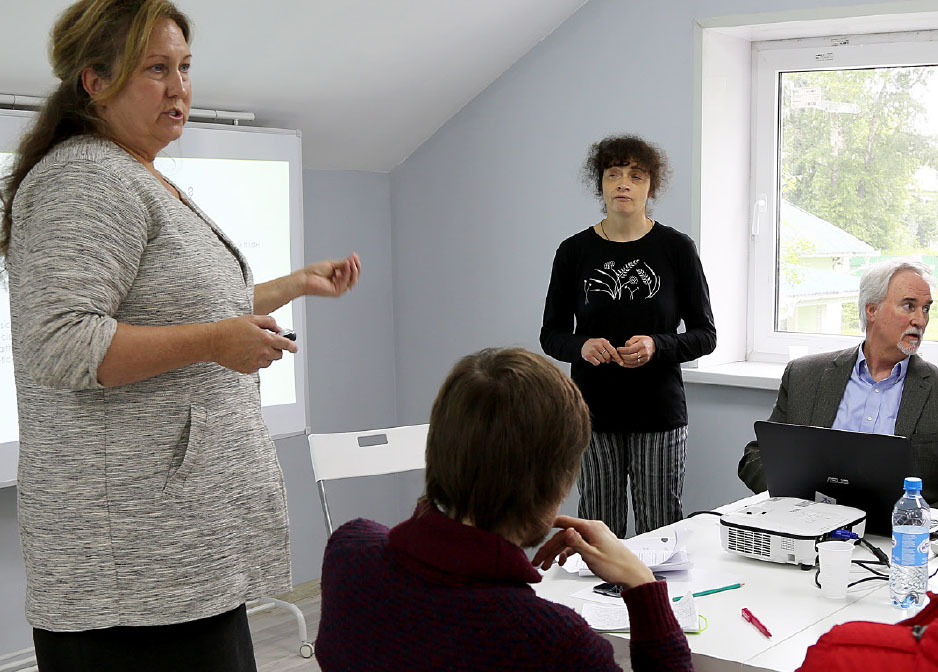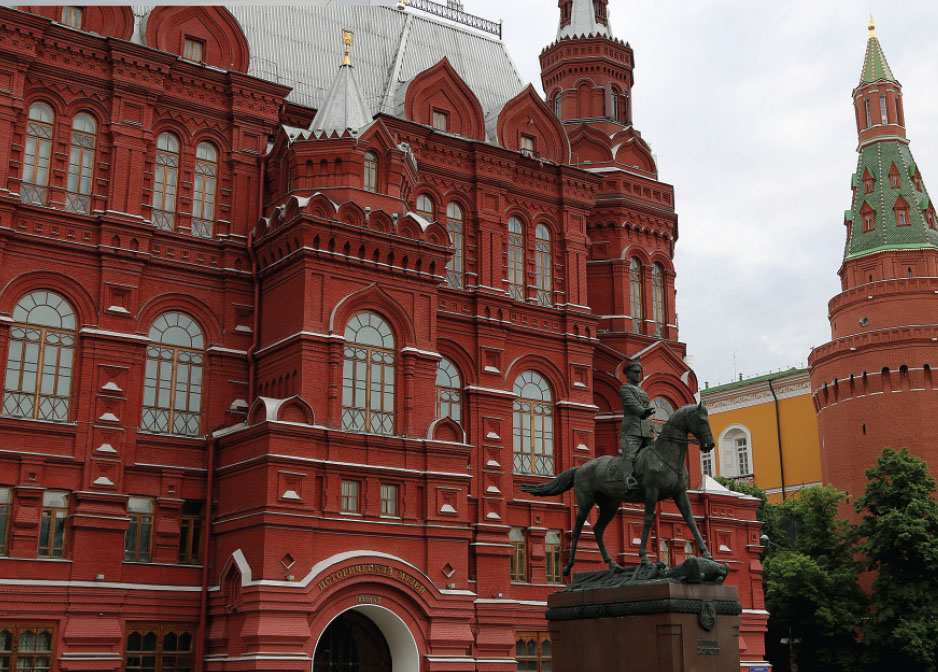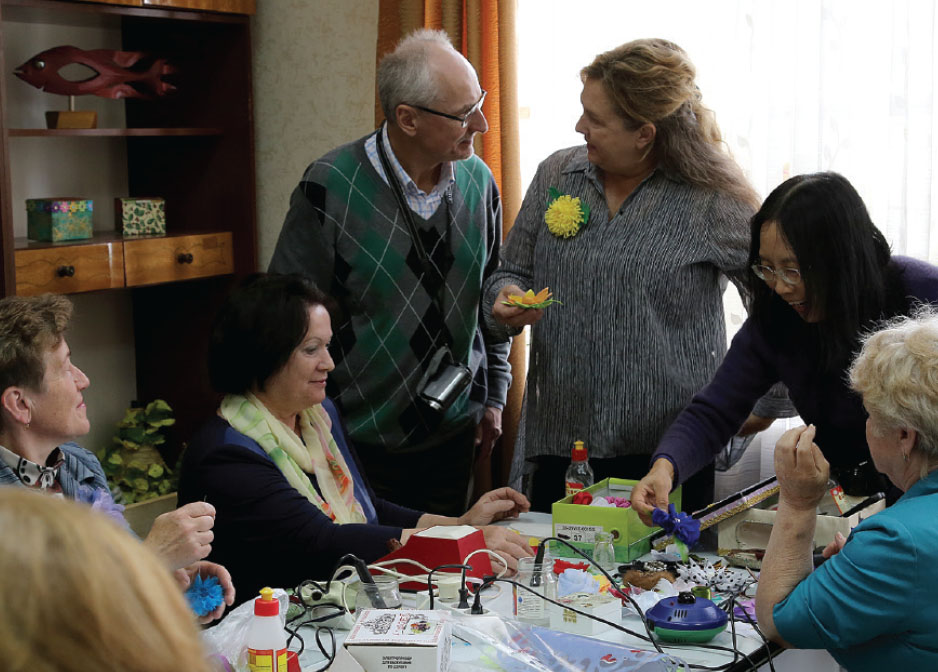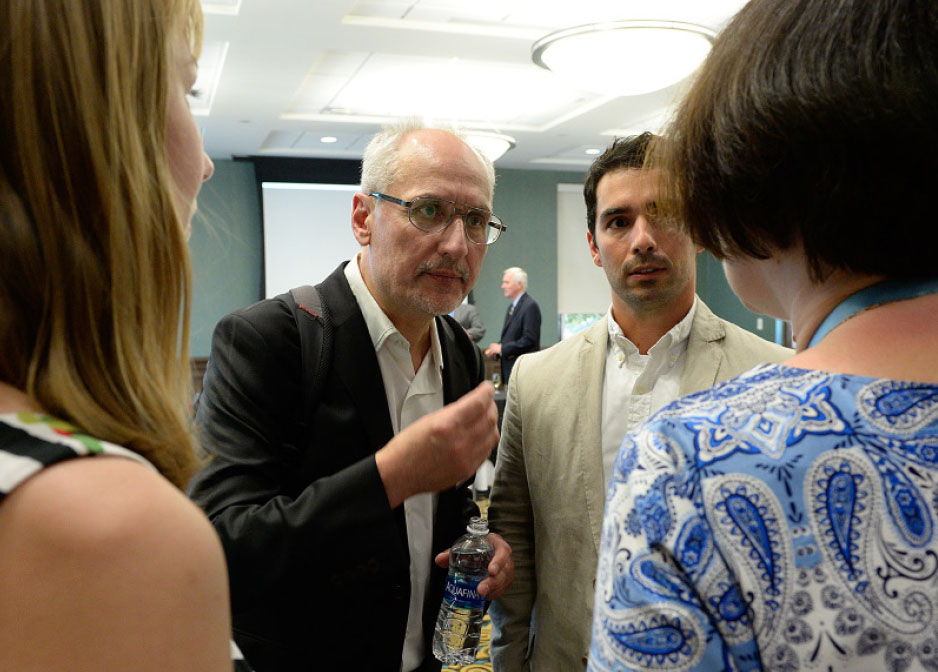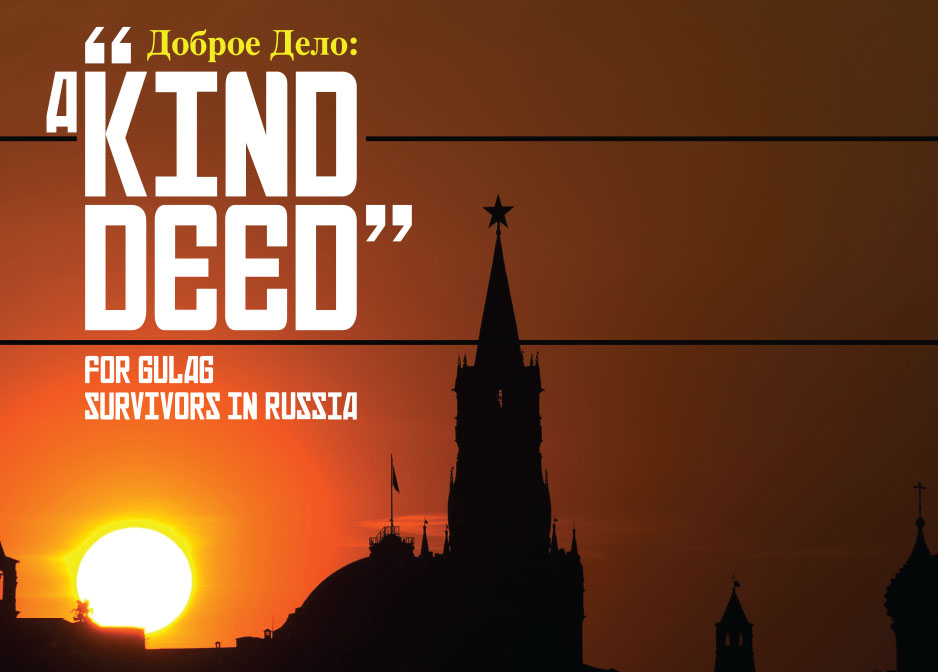
For the past 10 years, Coastal Carolina University psychology professor William Hills, a specialist in gerontology, has been traveling to Russia to teach and conduct research on the country’s aging population. In this article, Hills describes how his friendship with a health care colleague who grew up in the former Soviet Union has given Hills a rare glimpse into a phenomenon few Americans know about.
A House Call
I was in Russia recently and saw Boris, an older gentleman whom I think of as a friend. He and I had met once before, at his home in Moscow, and I was delighted that on this meeting he spontaneously referenced our first encounter. It had been easy for me to remember that 2012 visit: I had never before met someone associated with the gulag, the infamous system of forced labor camps where millions slaved and died during Soviet dictator Josef Stalin’s long reign of terror (1922-1953).
This time we were at a small community center where a small group of volunteers met to coordinate services for older adults who can’t get out and about. Moscow, with its lack of accommodations and its many steps—always steps—is not an easy city to navigate if one has any type of challenging physical condition. I was there as part of a grant-supported delegation of U.S. gerontologists examining health care delivery for elderly Russians, and this center had a specific mission to provide services for older individuals officially recognized by the government as victims of repression. I had asked my grant partner, Dr. Eduard Karyukhin, a Russian physician who provides home-based services for older adults in Moscow, to set up the meeting, and, if possible, to see if Boris would agree to a videotaped interview. Eduard and I had worked closely together on the itinerary for the delegation visit, and I wanted my colleagues from America to witness how events of Russian history have directly influenced the development of unique forms of service delivery for the elderly. Boris agreed, and, for two hours, we sat spellbound while Boris and Alexandra, another gulag victim who was also on hand that day, described their lives as children during the Stalin years. The purpose of the delegation visit dated back a couple years to a grant announcement posted by the U.S. Embassy Moscow, describing the U.S.-Russia Peer-to-Peer Dialogue Grant Program. The program was specifically designed to promote the nonpolitical “exchange of best practices between Russians and Americans.” Since gerontology is now a global phenomenon, with most countries of the world experiencing similar issues regarding aging populations, the program seemed to fit perfectly into an existing relationship I had developed with Eduard. After a brief review of the request for proposals, Eduard said he was interested—the grant appeared to offer a means to advance nongovernmental services for older adults of Russia—and he and I went to work. The resulting program included the U.S. delegation’s visit to Russia and a similar visit for a Russian delegation to the U.S. Both trips occurred this past June, both itineraries proved successful, and both groups of gerontologists emerged from the peer-to-peer exchanges of the program with a deeper understanding of how older adult services are organized and provided in a country other than their own. I first met Eduard, who is 63, in April 2012 following a global aging presentation I made at the American Culture Center in Moscow. He and I discussed gerontology issues late into the night of that first meeting, and I was intrigued when he told me his medical practice involved providing care to gulag survivors in their homes. I expressed interest in his work and eagerly accepted his invitation to accompany him to see one of his clients, Boris.
Two days later, we wound our way up and through the maze of high-rise apartments that defines Boris’ neighborhood. Arranged in clusters, the huge, multistory slab structures form whole communities that sprawl across the landscape in Moscow. Within the deep complexes of virtually identical concrete buildings are schools and stores, and it’s easy to imagine that life occurs for many Russian children within the boundaries of these inner courtyards, under the watchful eyes of the babushkas. Even with the good metro and bus systems, going anywhere in Russia requires a considerable amount of walking. For this reason, many older residents find it difficult to stray too far from home, and many of the oldest-old become housebound and reliant on neighbors for help with groceries and chores. Eduard said that Boris lived on an upper floor; I was relieved, for the sake of Boris and myself, that the elevator worked.
Boris had been alerted that Eduard would be accompanied by an American, and he greeted us with a smile at his front door. On the kitchen counter Boris had arranged little teacups and saucers, tea bags, sugar cubes, tiny spoons, an assortment of cake and pastry squares, chocolates, a bowl of candies, and glasses of different sizes. When the electric kettle began to hiss, Boris began shuttling accoutrements to the table, ceremoniously displaying each item before us for approval. Saving the vodka and cognac for last, Boris held up the bottles, nodding in anticipation. I looked to Eduard. Should I accept an early afternoon bracer with an 85-year-old Russian undergoing a medical checkup? Eduard smiled. I was given the honor of offering a toast, and I chose a simple one, to good health.
The more I watched Eduard gently poke and prod Boris, the more I understood that I was unusually privileged to witness this relationship; Boris trusted Eduard implicitly, and by association Boris was extending that feeling to me. For an older retiree in Russia, Boris had lived well beyond life expectancy, which averaged 70 years (average life expectancy for males in the U.S. is 77 years). He had outlived his wife, which was highly unusual, given the 10-year female over male length of life difference. He was still in mourning over her loss from a couple years earlier. His loneliness, Eduard had told me, was offset somewhat by neighbors visiting. I could tell he looked forward to Eduard’s visits. Boris’ hospitality, extended to me, was seemingly boundless; I had successfully declined a second glass of vodka, but found it more difficult to politely decline an offer of personal possessions he wanted me to have. In the end, I accepted a Russian calendar but refused an official-looking form letter with Vladimir Putin’s signature, sent to all military veterans on Victory Day.
A Doctor's Calling
When Eduard was a young physician, his interest was stirred by a newspaper article his father gave him about the formation of the Memorial Society, an organization founded in the late 1980s to address human rights violations, including the rehabilitation of persons who had fallen victim to the gulag system. As a boy, like most Russians his age he was largely unaware of the extent of Stalin’s atrocities. When the revelations of Aleksandr Solzhenitsyn’s writings began emerging in Russia in the 1970s, Eduard, then in high school, devoured anything available in the samizdat (or underground) press and eagerly followed the activities of persons who worked for human rights causes. Learning about the Memorial Society and its association with renowned dissident and Nobel Peace laureate Andrei Sakharov, he decided to fill out an application.
Who says one person can't make a difference?
The organization was delighted to welcome a physician to its ranks and offered Eduard an initial opportunity to provide medical services for 10 to 12 gulag survivors. A staggering 20 million Russians are estimated to have been interned within the system. Eduard had been astounded to learn of the widespread distribution of camps, described by Solzhenitsyn as an archipelago, and he reasoned that many persons associated with the gulag had returned to their communities of origin and were still alive.
What he hadn’t realized was how insidious an association with the gulag had become within the fabric of life in Russia. Multiple generations of families of the gulag had attempted to anonymously dissolve into neighborhoods, to quietly distance themselves from the stigma of having a relative once labeled as an “enemy of the people.” Eduard strongly approved of Memorial’s goal to rehabilitate survivors, to clear names of wrongdoing via the government’s admission of culpability in the arrests, incarcerations and (often) executions of innocent citizens. He himself remembered as a child having to identify on school forms whether a relative had an association with the gulag system.
Working with Memorial gave his work a special purpose. Having somehow lived through the gulag experience, many survivors were now sick, suffering from a host of post-traumatic ailments, and often poor and alone. Many persons with first- and even second- and third-hand experiences with the gulag had lost multiple family members and, in some cases, because of persistent psychological damage had lost the ability to participate in normal family relations. Eduard’s mission became one of full-time service to some of Russia’s most vulnerable persons. He began coordinating home-based services for up to a dozen participating physicians, working through three Moscow hospitals that accepted gulag victims free of charge.
Following the dissolution of the Soviet Union in 1991, Russia fell on hard economic times, and the medical care field underwent a paradigm shift. Under the earlier state-supported system, in which payment wasn’t an issue, geriatric medicine was a preference of physicians for research and practice, and as a result older adults received needed services and had a relatively high degree of status in their families and communities. But throughout the 1990s, as the limited capitalism-based economy slowly grew in Russia, a fee-for-service model developed that largely left those who couldn’t pay out of the health care market. Consequently, geriatrics became less attractive as a specialist area for physicians, who, perhaps understandably, felt financially compelled to look out for their own families. Even today, the average pensioner in Russia lives on about $200 per month, making it difficult, if not impossible, for many older adults to see a doctor or receive attention in a hospital.
By the late 1990s, Eduard perceived that the mission of Memorial had shifted. He appreciated and supported the political gains of the Yeltsin years. (He was present at the Russian White House in August 1991 during the two tense days and nights of the failed attempt by the Communist Party of the Soviet Union to unseat Mikhail Gorbachev.) But increasingly, he had less interest in the political aspects of human rights issues and more interest in a nonpartisan provision of medical services. By 2000, Eduard had made the decision to go his own way. With his mother and another physician, Eduard formed Dobroe Delo, translated as “Kind Deed,” a nongovernmental foundation serving “victims of totalitarian regimes.”
His decision was made in part to dissociate from politics, but Dobroe Delo is also the result of a startling discovery he had made that cemented his decision to focus on individuals in need, no matter what their circumstances. After he began work with Memorial, Eduard discovered a gulag connection in his own family: his maternal grandfather had been arrested in the 1930s and spent 17 years in a work camp. He had survived the gulag, Eduard learned, because he had taken accounting in school, a skill that was useful to his captors. With an indoor job, he escaped the fate of millions of prisoners who were worked to death in the bitter Siberian winters. Eduard does not know the reason for his grandfather’s arrest (typical for gulag internees), and his mother, with whom Eduard has lived for most of his adult life, never discussed her father’s imprisonment. Eduard saw his grandfather only once, in 1960, when he was a young boy. Although still a relatively young man, his grandfather was seriously ill with a stomach condition and drank heavily. He died soon after, haunted by a fear that the gulag would return.
In 2006, Edward extended the reach of Dobroe Delo through the formation of the National Coalition of Rights of the Elderly (NCRE), which organizes the many associations and nongovernmental groups that provide social care in communities across Russia. Today, the NCRE has nongovernmental members in dozens of cities, and Eduard travels widely to meet with prospective members and advocate for older adults.
Along with his many other organizational duties, Eduard still sees clients in their homes, and, like Boris, they look forward to his visits. Because of Eduard, however, and his ties to social organizations in the community and the outside world, Boris and many others who have overcome difficult lives are a little less lonely. Who says one person can’t make a difference?






